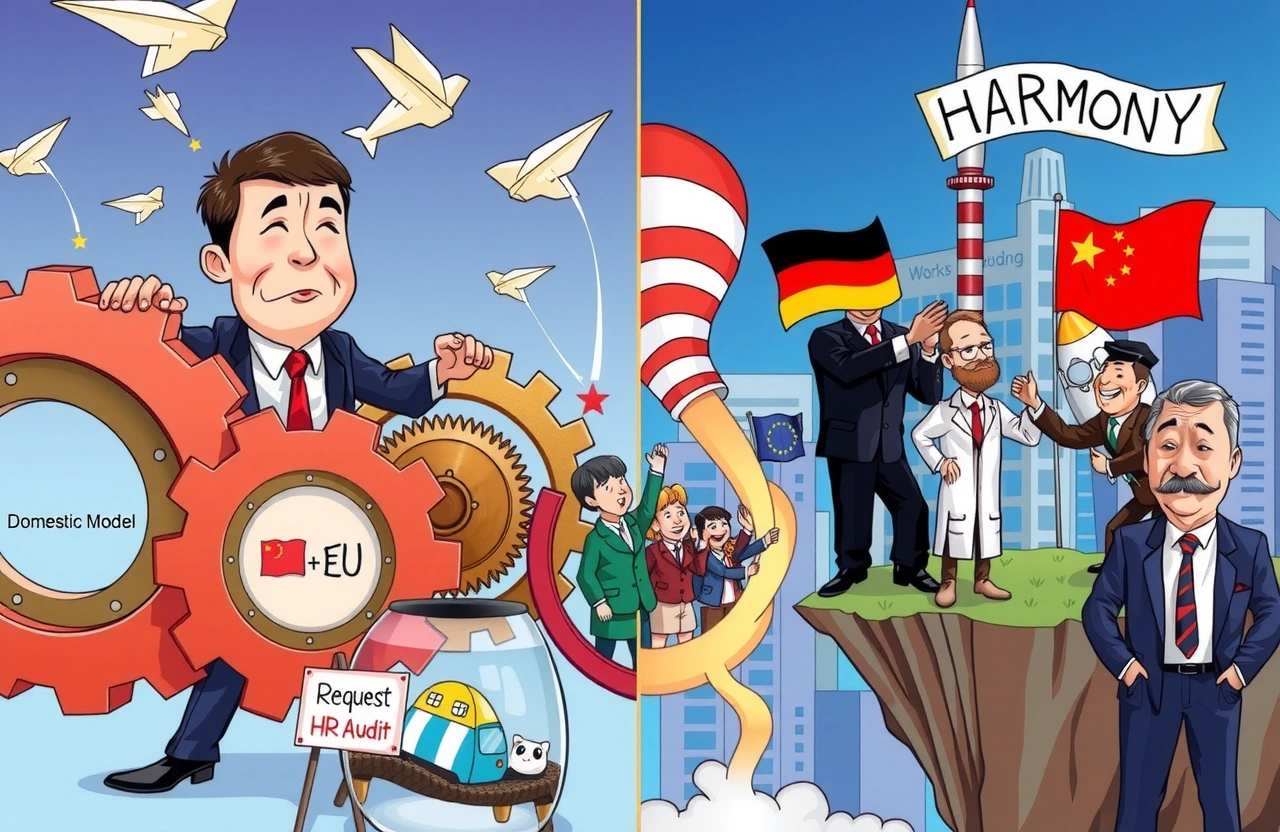The Global Expansion Paradox: Success at Home Doesn’t Guarantee Success Abroad
Chinese companies face intensifying domestic competition, with ‘go global or go extinct’ becoming a survival mantra. Yet former Ministry of Commerce official Ma She warns that replicating Chinese business practices overseas leads to catastrophic failure, particularly in complex regulatory environments like Europe. At the 2025 China Enterprise Globalization Summit, Ma revealed that firms often enter foreign markets blind to legal frameworks and cultural nuances – resulting in ‘fail-upon-departure’ scenarios. This analysis explores why copying domestic models backfires and offers actionable solutions.
The Lure and Pitfalls of Overseas Expansion
Global markets promise revenue diversification and growth, but 73% of Chinese enterprises underestimate compliance risks according to McKinsey research. Companies chase opportunities like Vietnam’s manufacturing boom or Mexico’s US trade access without grasping operational realities. Ma She identifies a critical pattern: businesses rely on fragmented intelligence from overseas contacts rather than professional market analysis, leading to catastrophic knowledge gaps. The core failure lies in assuming domestic management practices translate across borders.
European Regulatory Quicksand: A Case Study
Europe demonstrates why copying domestic practices fails international ventures. Employee termination requires navigating minefields like France’s mandatory 3-month notice periods and mandatory mediation. Germany’s Works Councils can veto dismissals, while Belgium imposes steep severance reaching nine months’ salary. China’s flexible labor policies become illegal compasses here – attempting direct domestic replication triggers lawsuits and reputational damage.
Three Root Causes of Overseas Failures
Ma She outlined fundamental flaws in China’s outbound expansion model:
Intelligence Breakdown
– Gossip-based decision-making replacing structured research
– Overreliance on expatriate networks with limited commercial insights
– False assumptions about tariff-avoidance opportunities in third countries
Experience Deficit
While 89% of Fortune 500 companies employ localized management teams according to Harvard Business Review, Chinese SMEs deploy homegrown executives unfamiliar with foreign compliance. This deficiency manifests severely in human resources. Copying domestic employment practices proves disastrous in jurisdictions with rigid worker protections.
Support System Failures
China’s professional services ecosystem remains underdeveloped for global operations:
– Financial institutions offer limited cross-border compliance solutions
– Legal advisors lack specialized knowledge in EU labor directives
– Insurance coverage gaps leave firms exposed to employment tribunals
European Employment Law: Where Domestic Tactics Collapse
Why copying domestic practices fails most visibly in Europe’s labor landscape:
Termination Firewalls
The process differs radically from China’s discretionary system:
– Mandatory consultation processes averaging 60-90 days
– Requirement to prove ‘just cause’ through documented performance issues
– Social plan obligations requiring re-employment assistance
Hidden Compliance Traps
Beyond dismissals, companies face:
– Collective bargaining agreements covering 60%+ of EU workers
– Works council approvals for operational changes
– Data privacy violations carrying 4% global revenue fines (GDPR)
Rebooting Global Expansion Strategies
Successful firms abandon copying domestic practices through these measures:
Strategic Localization
– Hiring in-country HR directors within first six months
– Regional legal audits before market entry
– Establishing local advisory boards
Risk Mitigation Framework
Implement proactive safeguards:
– Employment practice liability insurance
– Digitized compliance tracking systems
– Localized grievance resolution protocols
Lessons from Frontline Enterprises
Manufacturer Haier navigated Germany’s labor laws through these actions:
– Trained European managers in co-determination principles
– Integrated worker representatives in decision-making
– Implemented progressive discipline documentation systems
Contrastingly, a Zhejiang e-commerce firm faced €2.3 million penalties after unlawfully terminating employees in France – exposing the cost of copying domestic practices.
Globalizing Without Repeating the Past
Successful overseas expansion requires abandoning the ‘copy-paste’ mindset. Prioritizing cultural adaptation over domestic shortcuts, investing in localized expertise, and building robust compliance infrastructures separate thriving enterprises from failed ventures. Ma She’s insights reveal that globalization demands recognizing unique regulatory ecosystems. Take your first step today: commission an independent labor law assessment before entering new markets – your expansion success depends on leaving domestic practices behind.



